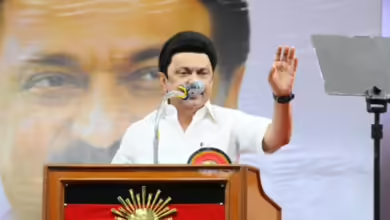Using drones, rural women soar to save crops
Traditionally supporting males in the fields of agriculture, rural women are now assuming a new role on farms by employing drones to spray pesticides.

Drone operation training has been provided to four women in the district. They are now known as “drone sisters,” or “drone didis.”
Priyanka Nehra (30) of Nathor village and Shakeela (38) of Madhosinghana village were among the women who participated in the drone training program in February as part of an initiative supported by the Indian Farmers Fertilizer Cooperative (IFFCO). With the use of drones, they have already completed pest control procedures on over 500 acres.
Shakeela and Priyanka emphasized that using conventional pesticide spraying techniques cost more money and required more physical labor. They stated that the process is now easy because of the drones.
Shakeela, who completed Class X and was inspired by IFFCO and district manager Sahil Kumar, made the decision to learn in drone operations after her husband Radhey Shyam helped her start a farmer-producer organization in her area.
In November 2023, she completed the course in Gurugram. She conveyed her appreciation for the effort to the IFFCO, the state and federal governments.
The ladies who participate in the program get an electric car for pesticide transportation and a drone valued at around Rs 15 lakh. A tiny generator has also been given to them so they can charge the drone’s batteries. Eight batteries are included with each drone, which enables them to traverse around 25 acres each day.
Currently, the women pilots who spray pesticide are paid Rs 250 per acre; the process takes five to seven minutes and uses ten litres of water. The conventional approach requires 125–150 liters per acre.
The two women from the district received training in using drones to spray pesticides as part of an effort by the cooperative, according to Sahil Kumar, district manager of IFFCO.
Farmers Sandeep Beniwal and Virendra Kumar of Madhosinghana village, however, said that although using drones to spray urea aerially was very handy, the cost was more than using human labor.
They said that each acre of spraying with the IFFCO drone costs Rs 400, whereas an acre sprayed by hand costs Rs 150.
To prevent adding to their already heavy workload, the farmers suggested that the IFFCO think about charging between Rs 200 and Rs 250 per acre for the purpose.







